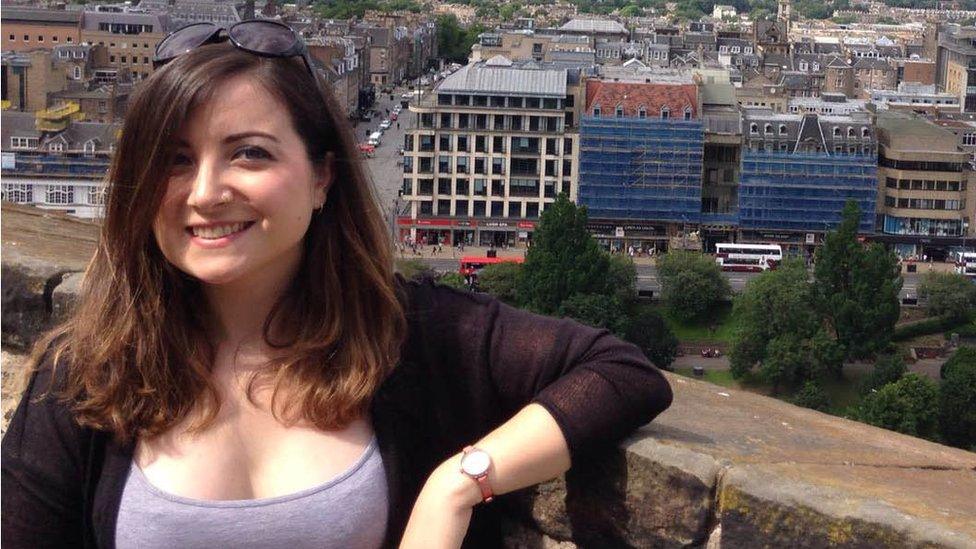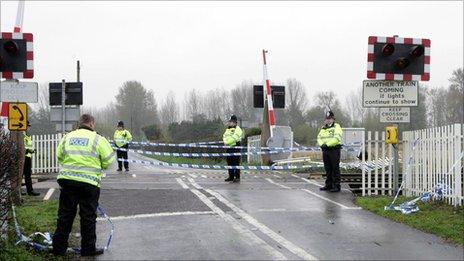Ufton Nervet train crash survivor fights for therapy
- Published

Seven people were killed in the Ufton Nervet rail crash in November 2004
A woman who survived a fatal train crash 12 years ago has criticised the NHS for ending the trauma therapy which had been "keeping her alive".
Harriet Myles, 31, said she had felt "continually suicidal" following the crash at Ufton Nervet near Reading.
She said her most recent course of psychotherapy had been stopped after reaching a 12-month limit.
She was told she "will not benefit from further psychotherapeutic intervention at this time".
Post-traumatic stress
The train disaster happened in November 2004 when motorist Brian Drysdale, 48, drove on to a level crossing to commit suicide.
Six train passengers died after the train derailed.
One carriage rolled over, the buffet car was bent double and the family coach in which most of the victims were sitting slid along on its side.

Ms Myles said she felt she had been told, "I'm sorry, you didn't get better fast enough".
Ms Myles, from London, said several years of treatment for post-traumatic stress disorder (PTSD) had enabled her to use public transport again.
But she said further therapy had been refused following an assessment phone call by the NHS Improving Access to Psychological Therapies (IAPT) programme, run by Whittington Health.
Her treatment was provided by the Barnet, Enfield and Haringey Mental Health NHS Trust for 12 months after which she was transferred to the IAPT service, which decided she would not benefit from continuing therapy.
A trustee of the suicide prevention charity CLASP, Ms Myles said she had been given the phone number of her local mental health crisis team instead.
She said: "Being told there isn't anything more is one of the hardest things you can hear.
"It comes across as, 'I'm sorry, you didn't get better fast enough, there's nothing else we can do'."
The Barnet, Enfield and Haringey Mental Health NHS Trust, which treated Ms Myles, said it was only clinically appropriate to provide one-to-one psychodynamic therapy for 12 months.
A spokesman said patients could become "dependant on therapy".
The trust said patients were often reassessed after a three-month break and further treatment would be considered if deemed necessary.
- Published18 April 2016

- Published15 January 2015

- Published6 November 2014

- Published22 September 2011
